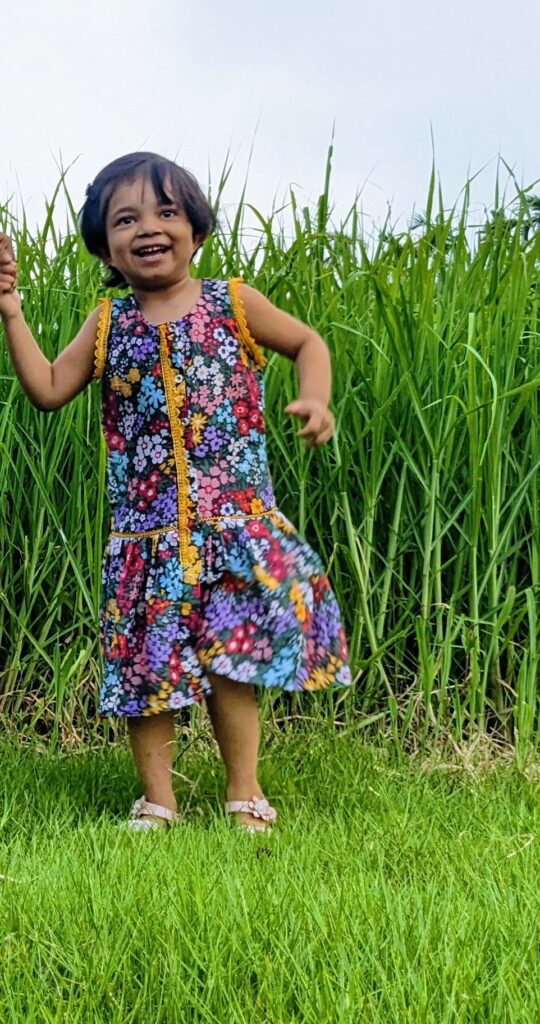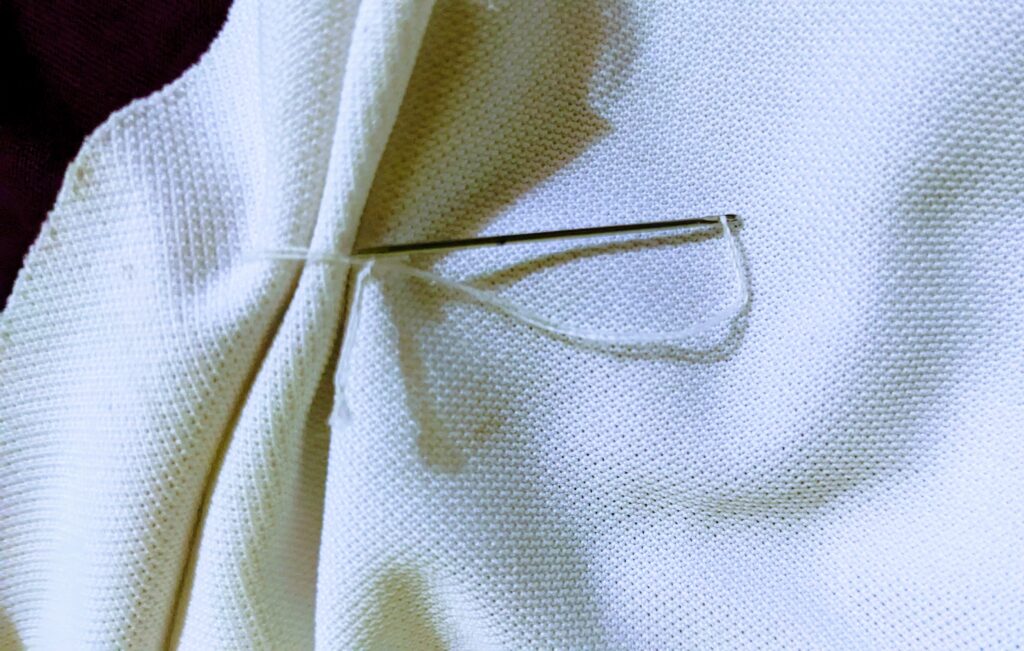Hand stitch vs machine stitch
If you have an interest in stitching, then you can gather knowledge about all kinds of stitching. You already know that there are two types of stitching in our fabric. We can see one hand stitch and another machine stitch. Hand stitch means special care. I will explain it a few moments later. Now let’s look at the differences.
Hand stitch: its one kind of stitch or which depends only upon the users. Users can use 1 layer or 2-3 layer threads in a row. And use a needle for stitching.
On the other hand, machine stitches have 2 types of threads, and they have individual names: one is a spool and another is a bobbin thread. They smoothly interact the 2 layers of a fabric. The needle for machines has varying variations, like some machines use DB, some use DP.
I have 2 sewing machines. One is from a singer, which is for beginners; it uses normal machine needles; another is for industrial heavy machine Zuki. It needs DP needles.
Basically, we always consider machine-stitched dresses. Because it can be easy and take a short time. So we prefer machine stitching.
But, if you consider strength, hand stitching is stronger.
Every stitch has pros and cons, and if you want to design with many products or design unique products, you have to choose a machine.
Hand stitching and machine stitching are two methods of joining fabrics together, each with its own advantages and applications.
Hand Stitching:
- Control: Hand stitching offers greater control over the stitching process.
- Versatility: Hand stitching can be used for a wide range of projects, from delicate embroidery to heavy-duty repairs.
- Portability: Hand stitching can be done anywhere, making it ideal for projects that require mobility.
- Craftsmanship: Hand stitching often imparts a unique, artisanal quality to the finished piece, valued for its craftsmanship and attention to detail.
- Therapy: Many people find hand stitching to be a relaxing and meditative activity.
- Bespoke: A bespoke suit is made by hand. So it’s also a hand stitch.
Machine Stitching:
- Speed: Machine stitching is much faster than hand stitching, making it ideal for large-scale projects or mass production.
- Consistency: Machine stitching produces uniform stitches, ensuring consistency across the entire piece.
- Strength: Machine stitches are often stronger and more durable than hand stitches, making them suitable for items that will undergo heavy use or stress.
- Efficiency: Machine stitching allows for efficient production, reducing labor costs and production time for commercial applications.
- Specialized Stitches: Modern sewing machines offer a wide range of stitches and functions, allowing for complex designs and decorative effects that may be difficult or time-consuming to achieve by hand.



